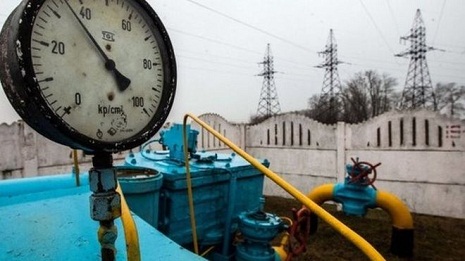Russia’s new marketing outlook and the European Union’s search for alternative energy supplies have been accelerated by the Western sanctions imposed on Russia over its actions in Ukraine. China and Russia have announced plans for vast new natural gas deliveries from Siberia to China — although they have yet to agree on a price.
While a shift of Gazprom’s focus from Europe to Eurasia would very likely be many years in the making, some Europeans fear it could end up reducing vital energy supplies to the Continent.
In Europe, where Russian gas supplies have been vital to countries like Germany since the 1970s, the European Commission has tried not only to diversify supplies but to ensure that separate entities are in charge of extracting, transporting and selling natural gas. An Energy Union established in February is aimed at encouraging the 28 European Union members to cooperate more to ensure energy security, including diverse and reasonably priced supplies.
The effort has not sat well with Gazprom, which traditionally has controlled everything from exploration for natural gas to sales — at varying prices that fluctuate according to history, geography and other, often unclear criteria.
“If the European Commission will insist on equal prices,” Mr. Miller said, “then of course, as you understand, a base price is not the lowest price. It will be the highest price.”
According to Gazprom’s website, the average cost of gas for the first nine months of 2014 — the latest period for which figures are available — was 12,509 rubles per thousand cubic meters. That was for sales outside the former Soviet Union, and is about $315 per thousand cubic meters at the exchange rate at the end of the reporting period, Sept. 30.
Mr. Miller rarely speaks in public or talks to foreign journalists. He delivered his remarks to a conference in Berlin organized by the German Council on Foreign Relations in Berlin and the Valdai Club, a nongovernmental group that brings together Western specialists in Russian affairs with Russian academics and public figures.
He was also scheduled to meet with government officials in Germany, which is a major customer of Gazprom’s supplies.
Currently, about a quarter of European Union gas comes from Russia, and at least half of that supply flows through Ukraine. Alexander Novak, Russia’s energy minister, indicated in remarks to journalists at the conference that Russia would prefer to avoid Ukraine once the current contract on transit through the country expires in 2019.
That is the starting date the Russians envisage for Turkish Stream, a gas pipeline that would go from Russia under the Black Sea to Turkish territory near borders with Bulgaria and Greece, both European Union members.
President Vladimir V. Putin of Russia made a surprise announcement last fall that the South Stream project, another Black Sea pipeline that was designed to run from Russia to Bulgaria, was being scrapped. Russia has indicated that South Stream became commercially precarious after Bulgaria failed to give the necessary permission for underwater construction to start.
The episode magnified the mistrust between the European Union and Russia over energy, particularly since a deep chill descended on relations in general over Russia’s annexation of Crimea last spring and its support for rebels battling the Kiev government in eastern Ukraine.
Despite a long-running dispute between Brussels and Moscow over Gazprom’s pricing, and the frost in relations over the past year, Mr. Miller expressed willingness to work with the European Union.
“Trust has been damaged, but we hope it will be restored,” he said. “Gazprom is quite certain that nothing can happen to prevent Gazprom and the European Union to continue being important and necessary partners in the gas market.”
More about:
















































